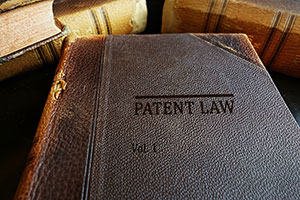On occasion, expert witnesses agree to work for free. Dr. Martin Tobin, a lung and critical care specialist with more than 40 years of experience, testified that George Floyd died due to a lack of oxygen after Derek Chauvin knelt on Floyd’s neck. Tobin has been compensated for his expert testimony in several civil cases, but he did not charge prosecutors for his expert testimony in Chauvin’s criminal trial.
In some cases, expert witnesses testify as part of their employment. A mechanic who works for an auto repair business might explain why a brake failure that caused an accident was not caused by a faulty repair. In that case, the mechanic is testifying as an expert but will generally be paid only the hourly wage that the employee earns for performing work duties.
In most cases, however, expert witnesses are retained for litigation and promised a fee for their expert assistance. As a general rule, experts are free to set their own fees for acting as a consulting or testifying expert.
Lawyers, on the other hand, rarely have unlimited budgets. They can only pay fees that their clients can afford. Lawyers are also constrained by rules of professional responsibility that might limit the amount they can pay. Expert witnesses should be aware that lawyers may pay them a reasonable fee but not an exorbitant fee.
Ethical Constraints
The ABA Model Rules of Professional Conduct prohibit lawyers from offering an inducement to a witness that is prohibited by law. For example, a lawyer may not bribe a witness to testify in a particular way. The payment of fact witnesses (as opposed to reimbursing travel expenses) is often regarded as a prohibited inducement to testify.
A comment to that rule makes clear that a lawyer may “compensate an expert witness on terms permitted by law.” Since paying reasonable compensation for an expert’s work is not an unlawful inducement to testify, paying an expert’s fee typically raises no ethical issues.
The rules of professional responsibility in many states address the payment of witnesses more directly. The professional responsibility rules in many states prohibit lawyers from paying more than a “reasonable and customary fee” to expert witnesses.
Reasonable Fees
A fee that the expert has charged in other cases is usually the “customary” fee of an experienced expert. When a witness has given no previous testimony as an expert, a customary fee might be the fee that experts with similar qualifications who are of similar stature charge for their testimony. Fee surveys might provide new experts with guidance as to customary fees charged by expert witnesses in their field.
Unless it is clearly exorbitant, disciplinary boards will generally regard any fee that the expert and the lawyer agree upon at arm’s length as reasonable. The dividing line between a reasonable fee and an exorbitant fee, however, can be difficult to draw.
The issue of reasonableness usually arises when a court requires one party to pay the fee of an expert who testifies for the opposing party. For example, a federal court must require the party taking the deposition of an opposing party’s expert to pay the expert’s reasonable fee for testifying. When permitted by statute, a prevailing party may be able to recover the fees that the party paid to its expert witness.
Federal courts consider several factors when they decide whether the fees charged by an expert witness are reasonable. Those factors include: (1) the expert’s area of expertise; (2) the education and training required to provide the expert insight that is sought; (3) the prevailing rates of other comparably respected available experts; (4) the nature, quality, and complexity of the discovery responses provided; (5) the fee actually being charged to the party that retained the expert; and (6) fees traditionally charged by the expert on related matters.
When both parties employ experts, the court may compare the fees charged by the competing experts as a guide to reasonableness. However, when one expert has stronger credentials or more experience than the other, it isn’t unreasonable for the more qualified expert to charge a higher fee.
The reasonableness of an expert’s fee depends not just on the expert’s hourly rate, but also on the number of hours that the expert bills. Courts generally recognize that an expert must prepare to testify in a deposition. Courts will often agree that it is reasonable for an expert to spend two to three hours preparing for each hour spent testifying.
The time it takes to prepare an expert report is a function of the complexity of the case. When the expert is not required to do extensive research and the facts are simple, the reasonable time to prepare a report will be less than the time required to draft a report in a more complicated case. There is no rule of thumb that helps experts determine the reasonableness of a total fee. As a general rule, if the expert works efficiently and charges a customary hourly rate, the expert’s fee will be reasonable.
Hourly Rate vs. Flat Fee
Most experts charge an hourly rate. Some experts charge a flat fee. Fee agreements might also combine the two forms of payment. An expert might charge an engagement fee that locks in the expert so that the expert cannot be hired by another party. Engagement fees are a fixed sum of money, but they are often treated as retainers.
An expert who charges an hourly rate might credit a lawyer with an advance payment for the hours covered by an engagement fee. However, experts often require an engagement fee to be nonrefundable, treating the engagement fee as the minimum fee that will be charged for the expert’s work.
Flat fees are often charged per task. For example, an expert might charge a flat rate for each day (or half day) of trial testimony or for each day (or half day) of deposition testimony, regardless of the length of time that the expert testifies.
Some experts offer services pursuant to a hybrid fee agreement. They charge hourly rates to review documents, meet with lawyers, perform the work needed to reach an opinion, and write a report. They then charge a flat fee to testify.
Contingent Fees
Lawyers cannot pay an expert witness a fee that is contingent upon the trial’s outcome. Even if the lawyer has agreed to accept a contingent fee in a personal injury case, the lawyer cannot enter into a contingent fee agreement with an expert witness.
Courts and the authorities who regulate lawyers fear that expert witnesses will slant their testimony to favor a party if their payment is contingent upon the party obtaining a favorable verdict. Since the court system benefits from honest experts, it disallows contingent fees for the same reason that it prohibits lawyers from paying unreasonable fees. The judicial system discourages any fee arrangement that creates a strong incentive to testify falsely.







